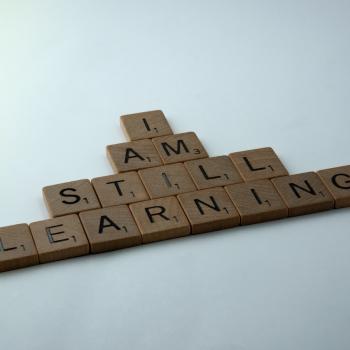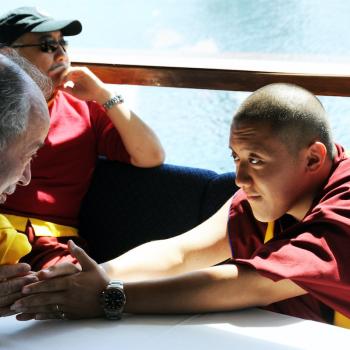
I grew up in a context familiar with the Ku Klux Klan. My first vivid memory of this nefarious organization came near the home of a relative. One evening while outside playing with my brother and cousins, the adults quickly and unexpectedly whisked us inside as a group of white hooded men arrived in the field next to us with a cross to burn.
Thinking back to that childhood memory repulses and frightens me at the same time. The human race’s penchant to oppress those who are different personifies wickedness. Racial and ethic tensions, though, are nothing unique to the United States. Our world mourns the genocide of the Jews, Tutsi, Bosnians, Vietnamese and Cham, and more.
In fact, in nearly ever country I’ve visited, their are tensions between races, tribes, and people: Germans and Turks; Turks and Kurds; Brahmins and tribals in Nepal; Castes and Dalits in India; Mulattoes and Haitians; and I could go on. Even more so, unprecedented numbers of refugees and immigrants hoping for a better life as they escape tragic wars and unthinkable violence at the hands of other humans endure continuing suffering as minorities in their adopted nations.
How Christian Can It Be?
While living in Romania for a decade after the fall of communism, we learned of the mutual animosity between Romanians, Hungarians, and Rromi, even though all claimed to be Christians. Absurdly enough, I even hear from Christian leaders in other countries who support racial and ethnic division especially when it aligns with their particular political ideology. No matter if it’s the dispute about immigration along the US-Mexico border or the unjustified war in Ukraine, Christians are often polarized on ethnic issues due to politics. Once, I was dumbstruck when speaking with a Burmese church planter who supported the government’s actions against the Karen. How can any of this be Christian?
Unfortunately, “Christians” have a shameful history of warring against people. From Augustine’s justification for the sword as an instrument of conversion, to the “Christians” from the North and South killing each other in the US Civil War over fundamental human rights. Even the two great wars were largely between “Christian” nations. Quite a disgrace and a slap in Jesus’s face. It’s as if Eph 2:11-22 was extracted from their Bibles. Such actions by a people leave no right for them to bear the moniker “Christian nation.” There is simply nothing Christian about them.
Mystery of the Message
Perhaps more puzzling than the tensions between humans is the gospel. Mystery rightly described the gospel message Paul brought to the ethnic tensions of his day. As many as 50 distinct ethnic groups lived in Asia Minor at the time of his visit. In larger Roman cities, foreigners from every corner of the world worked as tradesmen, artisans, and craftsmen. Others came to the cities forced into slavery. The ethnic diversity of these cities rivaled the diversity of global cities today.
In such an ethnically, socially, economically, and religiously pluralistic environment, the idea of the all-powerful God humbling Himself by taking the form of a servant to be crucified, buried, and raised must have sounded wonky to groups of people all too familiar with spiritual realities. Even more mysterious, the actions of this God broke long standing racial and ethnic barriers in order to create a new people united to carry out His will.
In a context accustomed to competing provincial gods and goddesses, Paul declares a god who desires all to be saved—without regard to race or ethnicity—and for all to come to the knowledge of truth (1 Tim 2:4). It is difficulty to imagine God incarnating into an ethnic minority which, although tolerated, was despised by the majority. Quite the mystery. A perplexing mystery. An even more profoundly mysterious example for His disciples to follow; an example of going to a place that might very well be uncomfortable in order to be about God’s business.
Uniting the Races
The second characteristic of a disciple from my study of the church in Ephesus is this:
“Second, disciples declare the mystery of Christ to the nations (Eph 3:4–10, 1 Tim 2:1–4). The work of Christ in his ministry, suffering, death, resurrection, ascension, and session broke the barrier and united a new people for God’s kingdom. Disciples have eyes that see every person they encounter as a person God is pursuing. They understand that they might very well be the instrument that God uses to draw this person to be a new worshipper. However, it is not only those they might encounter in their social network. Disciples have a vision for the 2.1 billion people who do not have access to the gospel.” (Ephesiology, loc 3739)
In places where we continue to see and experience tensions between races and ethnic groups, disciples declare a mystery. It is truly good news. It is news that inspires and compels us on God’s mission. And it is news, when properly focused on Christ, that will unite people until the new song is sung:
And they sang a new song, saying,
“Worthy are you to take the scroll
and to open its seals,
for you were slain, and by your blood you ransomed people for God
from every tribe and language and people and nation,
and you have made them a kingdom and priests to our God,
and they shall reign on the earth.” (emphasis added, Rev 5:9-10)












